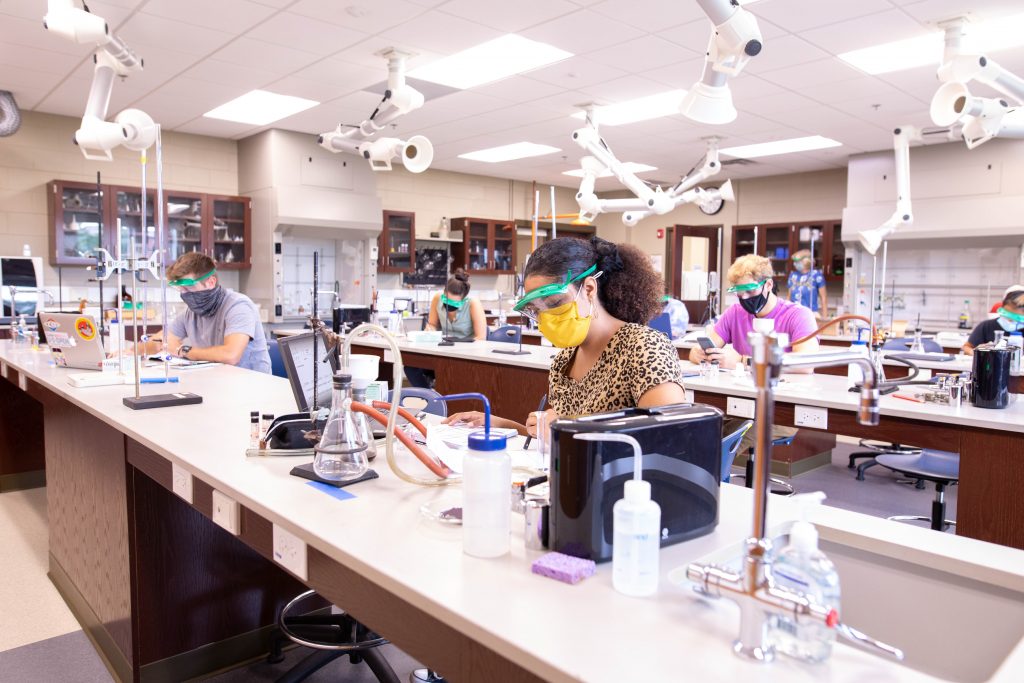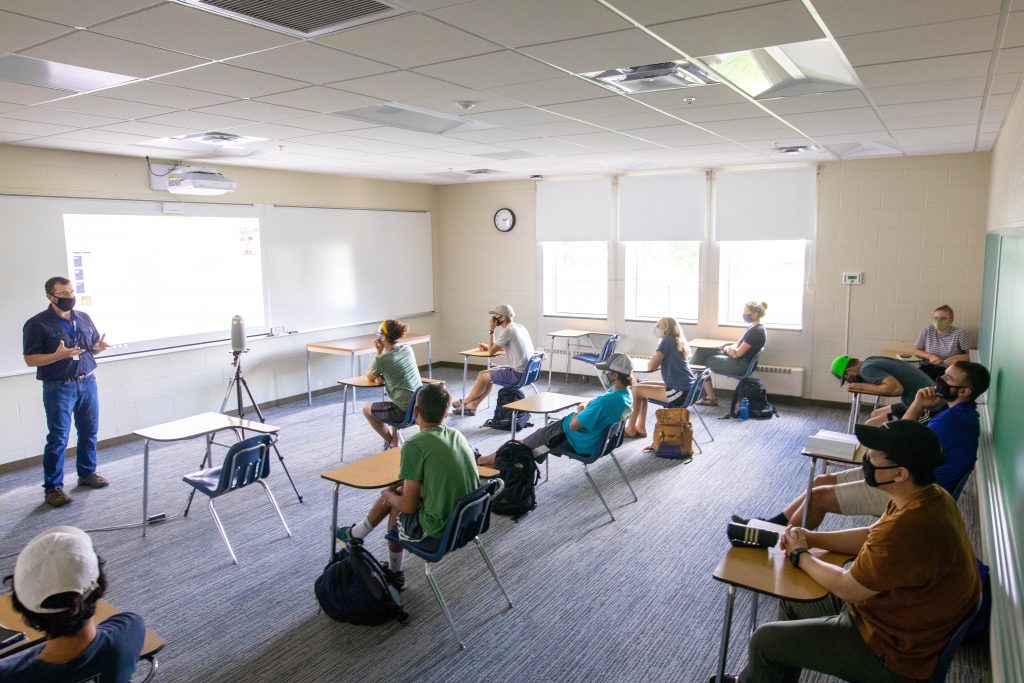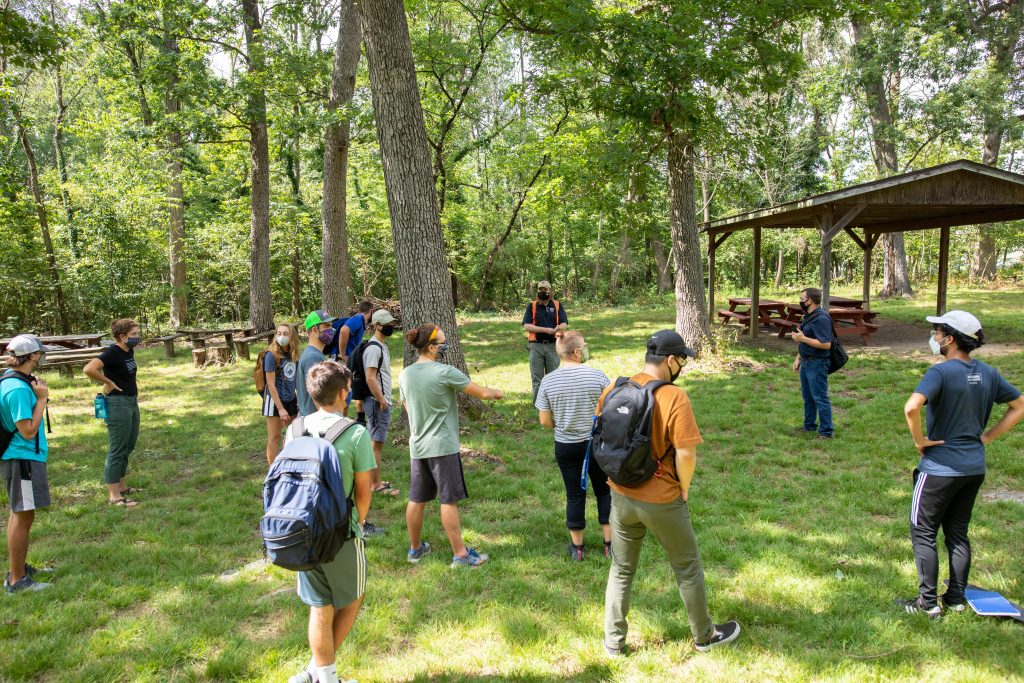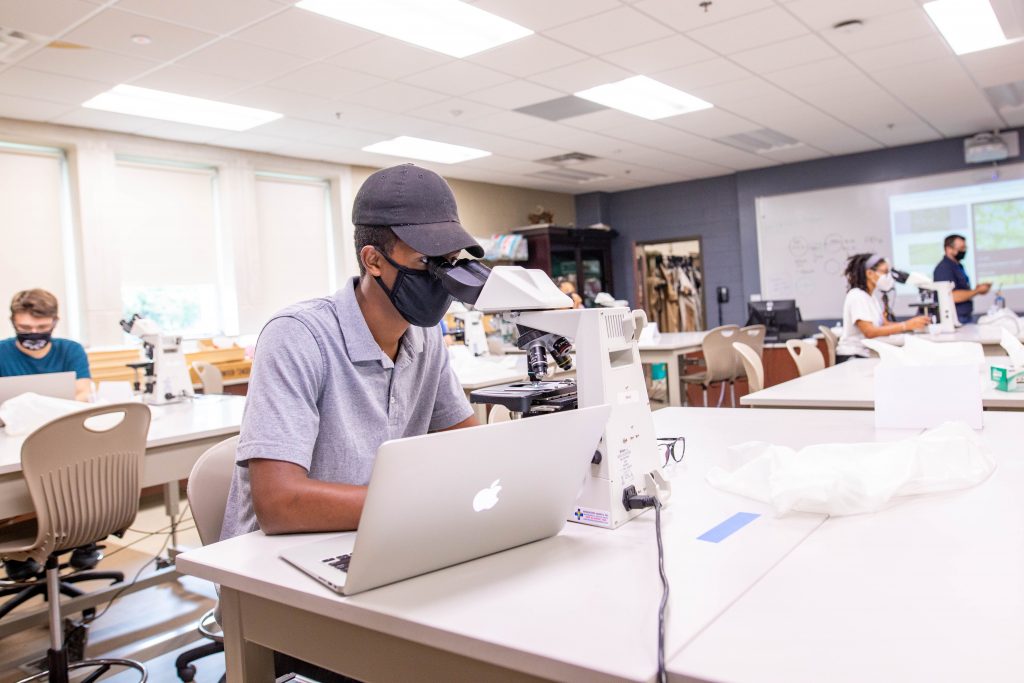The COVID-19 pandemic has wreaked havoc on educational institutions across the country – with students, instructors, and families seemingly in limbo as they try to navigate public health precautions and an increased migration to virtual learning. At Eastern Mennonite University (EMU), faculty have had to adapt their curricula to a semester that will begin and end online and accommodate in-person instruction in the middle. And fields that rely on practicum study have added challenges to face.
Some professors are finding this an exciting challenge.
“In many ways, this is an incredible time to be teaching students about public health and how medical and nursing research should influence practice,” said Professor Kate Clark. She’d normally be setting up clinical experiences with families and in other community health settings. Instead, a partnership with Harrisonburg City Public Schools will have student nurses assist with COVID-19 screening. The students will also perform a variety of nursing tasks at the Harrisonburg-Rockingham Free Clinic and at the Purdue poultry plant’s wellness center in Bridgewater.

These opportunities are the result of many years of relationship- and trust-building between the EMU nursing department and local agencies. Clark said she often hears from area healthcare providers “how ‘different’ our nursing students are – how professional, caring, broad-minded, culturally competent, et cetera. This is why they allow us to help in their work – because they trust our students to do this difficult work well and with great care and compassion.”
[Read more how spring 2020 nursing students gained unique experiences during the COVID-19 here and here.]
Future teachers also have a practicum-heavy course load. This semester, they’ll be learning through the same trial-by-fire as established educators, as they’re paired with local middle and high school teachers leading virtual classes for Harrisonburg City and Rockingham County Public Schools .
“With local public schools providing primarily virtual instruction, our EMU students will have important opportunities to learn and apply new strategies in the context of online education,” said Professor Paul Yoder. “As a professor, I will similarly have opportunities to engage new technology and instructional platforms like VoiceThread as part of classes I am teaching.”

VoiceThread is a software platform that allows users to interact with video clips and voice and text comments for a multi-media forum experience. It’s one of the many new technologies emerging as prominent teaching tools in the era of COVID-19, and one that was introduced in a summer course for EMU faculty titled “For Our Students: Fall 2020.” Professor Daniel Showalter helped design the course along with professors Mark Sawin, Tara Kishbaugh, Barbara Wheatley, and Steve Cessna.
“The primary motivation for the course was to equip faculty to provide positive learning experiences during the challenges and unpredictability of the pandemic,” said Showalter.
The course included a four-week module in course development, safe classroom configurations, resources for effective online teaching, and examples of creative solutions EMU faculty are employing this semester – like this introduction video Sawin made for his History 101 and 102 classes – which students can attend in person, via Zoom, or just complete the coursework asynchronously.
Kishbaugh led the module on course development. She said one of the biggest challenges this semester is the “cognitive load” of having to re-do, or at least reevaluate, every element of a class to make sure it fits in the new normal of COVID-19.
“It feels like nothing is on auto-pilot. This is true in other areas of our lives as well which leaves all of us with less energy,” said Kishbaugh.
She drew inspiration for this semester from a training she took years ago on institutional transformation work to improve the retention of students in STEM. The training, which came as part of a National Science Foundation grant, focused on “increasing our teaching efficacy and learning to be more responsive in our classrooms,” Kishbaugh explained. “The principles we focused on in this training were the ones that we highlighted this summer. Empathy and checking our assumptions are key to the rest of the pedagogical tools being effective.”
Showalter said this summer’s course participants came with a number of concerns and anxieties. How would they build relationships with their students in an online setting? What if they encounter technical difficulties? Will important conversations on racial justice, microaggressions, and disabilities be lost in the chaos of COVID-19? Showalter and his team tried to address each of these questions with digital resources, knowledgeable guest speakers, and small-group troubleshooting.
At the end of the day, everything we do, teaching college classes included, is “winging it” this fall – but in EMU’s classrooms, it’s done with particular care.
“The main idea here is that this semester will probably be stressful and there will be plenty of mistakes, but amidst it all, the goal is to center ourselves on the students’ needs and those relationships,” Showalter said.

